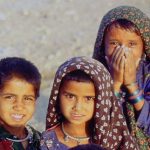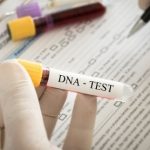GUATEMALA CITY (Reuters) – For three years Olga Lopez desperately searched for her baby daughter who was snatched from her home in Guatemala, until her face appeared in government paperwork for an international adoption.
Lopez, along with two other mothers who also believe their children were stolen and put up for U.S. adoption, pushed Guatemala to ask the U.S. Department of Justice to track down the babies and give them DNA tests so they can be returned.
“I recognized my daughter from her photo in the adoption files but there’s always the possibility that it’s not her. I don’t want to live in doubt. I want a DNA test,” Lopez said.
So far there has been no response from U.S. authorities, Lopez says. U.S. officials would not confirm they had received a formal request from Guatemala.
Guatemala, a small Central American country of 13 million people, used to have the world’s highest per capita adoption rate, with 5,000 children sent abroad each year. Private lawyers charged up to $50,000 to handle an adoption and sometimes forged papers or paid mothers to sell their children.
In December 2007, Guatemalan authorities introduced tough new rules to crack down on baby traffickers. A newly created adoption authority has not allowed a single international adoption since.
Some 3,000 cases that started under the previous adoption system are still in progress, with prosecutors promising to meticulously examine the files for fraud. So far, about half have been completed successfully, and the rest will likely be resolved by the end of January, said a spokesman for the new adoption authority.
But Loyda Rodriguez suspects the new system has cracks. Her 2-year-old daughter, Anyeli, was playing on the porch in the outskirts of Guatemala City when a woman grabbed her and sped off in a waiting taxi. Like other mothers whose babies were taken, she began scouring government adoption records to look for her daughter. She believes the baby was adopted by a couple in Missouri in December 2008.
Guatemala’s Attorney General’s office asked the United States in April of this year to test the three children, all adopted under the old system, after activist Norma Cruz went on a hunger strike to draw attention to the mothers’ plight.
Cruz wants Guatemalan courts to nullify the adoptions.
STOLEN CHILD FOUND
The U.S. Embassy in Guatemala requires couples to have records of two matching DNA tests to issue a visa for an adopted child, but DNA results are sometimes faked by laboratories colluding with child traffickers, said Cruz’s organization of mothers, called the Survivors Foundation.
The new government adoption agency prioritizes local adoptions over international ones. But Guatemala said last month it would start sending babies abroad again on a limited basis, since some children have not found local homes.
Cruz says that problems persist despite the new controls.
“The networks behind illegal adoptions haven’t been disbanded and they’re still operating because they’ve been making exorbitant amounts of money. This is a million dollar business,” said Cruz.
Cruz began her campaign after Ana Escobar found her 8-month-old daughter, who had been kidnapped at gunpoint, in a government office in charge of handling adoptions about to be sent off to the United States.
Escobar recognized her daughter Esther by the crooked little fingers on both her hands and confirmed her identity with a DNA test in 2008 and got her baby back.




